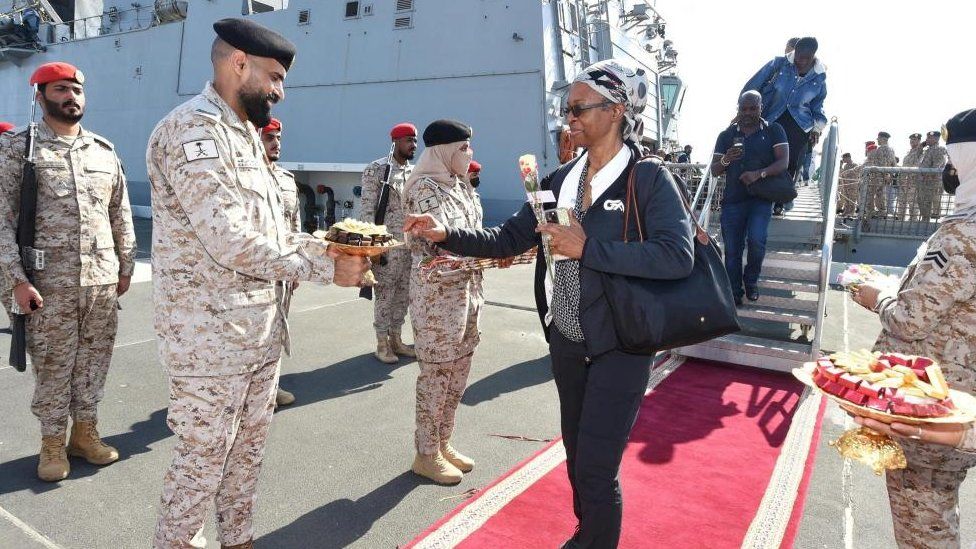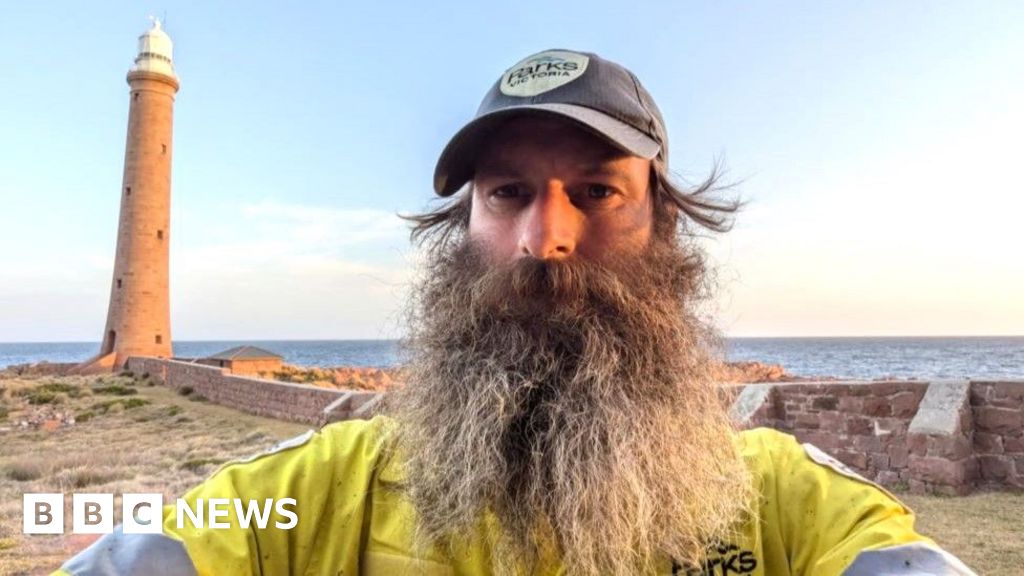ARTICLE AD BOX
 Image source, Reuters
Image source, Reuters
Those evacuated to Saudi Arabia on Saturday were welcomed at Jeddah Sea Port with sweets and roses
The UK government is considering ways to evacuate its embassy staff from Sudan, as fighting between rival armies continues in the capital Khartoum.
More than 150 people were evacuated by sea to the Saudi Arabian port of Jeddah on Saturday - mostly nationals of Gulf countries.
Khartoum airport has been repeatedly targeted and Canada's government says no flights are possible yet.
It has told Canadians in Sudan to "shelter in a safe place".
Describing the security situation as "highly volatile", the Canadian government travel advice tells citizens to keep their phones charged, their doors and windows locked and "consider leaving the country if there's a safe means to do so".
"With the airports and airspace closed, no air evacuations from Sudan are possible at this time," it says.
Meanwhile the UK has set up a hotline for those who need urgent help, and has urged its citizens in Sudan to tell the Foreign Office online or by phone where they are.
Any UK evacuation is expected to be very limited and focus on diplomatic staff - not comparable to the mass evacuation from Afghanistan in 2021.
Saturday's evacuation to Jeddah - the first since violence in Khartoum erupted last week - saw citizens, diplomats and international officials travel by sea. As well as Gulf nations, there were also citizens from Egypt, Pakistan and Canada.
Violence broke out in Khartoum on 15 April.
At the heart of the fighting is a power struggle between forces loyal to Sudanese army chief Abdel Fatteh al-Burhan and a rival paramilitary faction, the Rapid Support Forces (RSF).
The near constant shooting and bombardment in Khartoum and elsewhere has cut electricity and safe access to food and water for much of the population.
Several ceasefires that had seemingly been agreed by both sides were ignored, including a three-day pause to mark the Muslim holiday of Eid al-Fitr, which started on Friday.
Watch: Shocking sounds of heavy bombardment in Sudanese capital Khartoum
UK citizens stranded and frustrated
UK Prime Minister Rishi Sunak chaired an emergency government Cobra meeting on Saturday to assess the Sudan crisis and more talks are expected on Sunday.
Foreign Secretary James Cleverly has cut short a Pacific tour and is returning to London.
Some UK nationals trapped in Sudan have voiced frustration and anxiety over the absence of an airlift.
Briton Iman Abu Garga, visiting Khartoum, said she had registered herself and her two children, as instructed, "and since then - nothing".
"We have no idea about timescale or timeframe. We have no idea what it's going to look like. Are we going to be airlifted out of Khartoum airport? Are we going to have to go by road? It's just utterly frustrating that there is no human contact whatsoever," she complained.
Another British citizen in Khartoum told the BBC she felt "completely abandoned" by the UK government, saying she had not been given "much information at all" about possible evacuation plans.
On Saturday a Sudanese army statement said Gen Burhan had agreed to facilitate and secure foreigners' evacuation "in the coming hours".
It said British, US, French and Chinese nationals and diplomats would be evacuated by air on board military transport planes from Khartoum.
The UK government said it was "doing everything possible to support British nationals and diplomatic staff in Khartoum".
Spain's defence minister said six planes were being sent to Djibouti as part of the country's efforts to evacuate Spanish nationals and others.
The World Health Organization says more than 400 people have been killed. The death toll is believed to be much higher as people struggle to reach hospitals.
Thousands of people, mainly civilians, have also been injured, with medical centres under pressure to deal with the influx of patients.
Along with Khartoum, the western region of Darfur, where the RSF first emerged, has also been badly affected by the fighting.
The UN has warned that up to 20,000 people - mostly women and children - have fled Sudan to seek safety in Chad, across the border from Darfur.

 1 year ago
43
1 year ago
43








 English (US)
English (US)